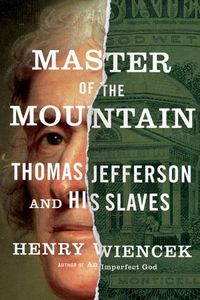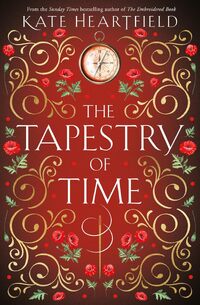

Purchase
Thomas Jefferson and His Slaves
Farrar, Straus and Giroux
October 2012
On Sale: October 16, 2012
Featuring: Thomas Jefferson
352 pages
ISBN: 0374299560
EAN: 9780374299569
Kindle: B008MWL8ZE
Hardcover / e-Book
Add to Wish List
Non-Fiction Biography
Is there anything new to say about Thomas Jefferson and
slavery? The answer is a resounding yes. Master of the
Mountain, Henry Wiencek’s eloquent, persuasive
book—based on new information coming from archaeological
work at Monticello and on hitherto overlooked or disregarded
evidence in Jefferson’s papers—opens up a huge, poorly
understood dimension of Jefferson’s world. We must, Wiencek
suggests, follow the money. So far, historians have offered only easy irony or paradox
to explain this extraordinary Founding Father who was an
emancipationist in his youth and then recoiled from his own
inspiring rhetoric and equivocated about slavery; who
enjoyed his renown as a revolutionary leader yet kept some
of his own children as slaves. But Wiencek’s Jefferson is a
man of business and public affairs who makes a success of
his debt-ridden plantation thanks to what he calls the
“silent profits” gained from his slaves—and thanks to a
skewed moral universe that he and thousands of others
readily inhabited. We see Jefferson taking out a
slave-equity line of credit with a Dutch bank to finance the
building of Monticello and deftly creating smoke screens
when visitors are dismayed by his apparent endorsement of a
system they thought he’d vowed to overturn. It is not a
pretty story. Slave boys are whipped to make them work in
the nail factory at Monticello that pays Jefferson’s grocery
bills. Parents are divided from children—in his ledgers they
are recast as money—while he composes theories that obscure
the dynamics of what some of his friends call “a vile commerce.” Many people of Jefferson’s time saw a catastrophe coming and
tried to stop it, but not Jefferson. The pursuit of
happiness had been badly distorted, and an oligarchy was
getting very rich. Is this the quintessential American story?
Comments
No comments posted.
Registered users may leave comments.
Log in or register now!
| 


 © 2003-2025 off-the-edge.net
all rights reserved Privacy Policy
© 2003-2025 off-the-edge.net
all rights reserved Privacy Policy